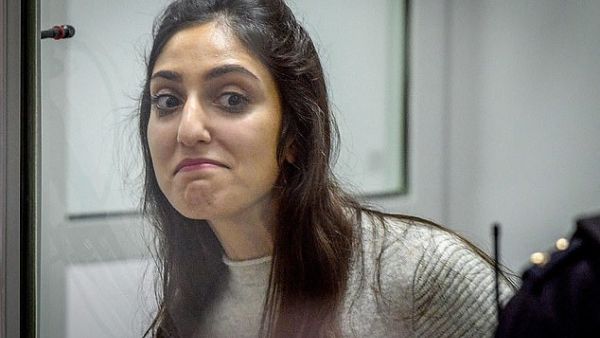An Israeli woman has submitted a petition to be pardoned by President Vladimir Putin.
Naama Issachar's lawyer said the request was filed following a statement by Kremlin spokesman Dmitry Peskov that she couldn't be pardoned without making a personal appeal, according to news agency Tass.
The 26-year-old backpacker was arrested in April at Moscow's Sheremetyevo airport, where she was transferring en route from India to Israel.
Russian authorities said more than nine grams of hashish were found in her luggage.
She was sentenced to 7 1/2 years in prison. Israeli leaders deemed the sentence excessive, and Prime Minister Benjamin Netanyahu appealed to Putin to pardon Issachar.
While in Israel for a Holocaust forum, Putin met Thursday with Issachar's mother and told her 'everything will be all right'.
However, the Russian leader also indicated that a final decision on the pardon was yet to be made.
According to Kremlin spokesman Dmitry Peskov, Issachar herself had to petition for a pardon because Russian law requires that step for the presidential pardon to be granted.
It 'stalls the situation,' Perskov said.
'How can (the president) pardon (her), if the young woman herself isn't asking for it? In this situation, certain formalities need to be observed,' Peskov told reporters on Friday.
Last week, Israeli media linked Issachar's possible pardon with the reported decision to pass control of the Alexander courtyard in Jerusalem's Old City to Russia. Russian officials denied any connection.
The Alexander courtyard, which was bought by Russia in 1859, is meters from Jerusalem's Church of the Holy Sepulcher.
It is one of several Jerusalem properties Moscow claims, and the dispute over it has been a source of friction between the usually friendly Israel and Russia.
This article has been adapted from its original source.








